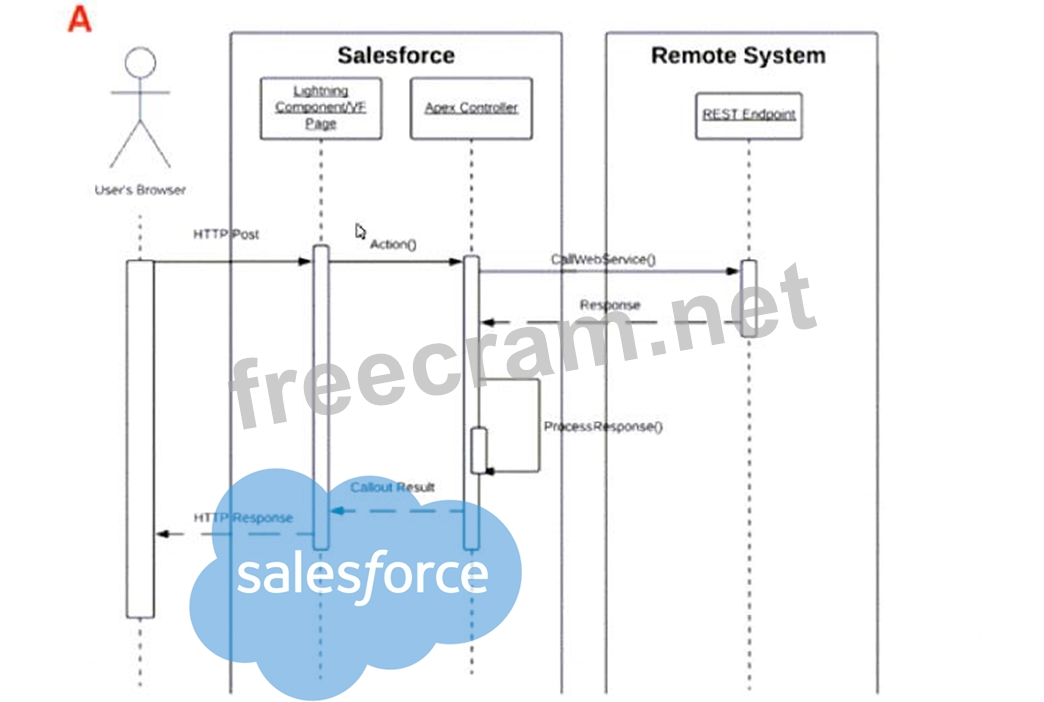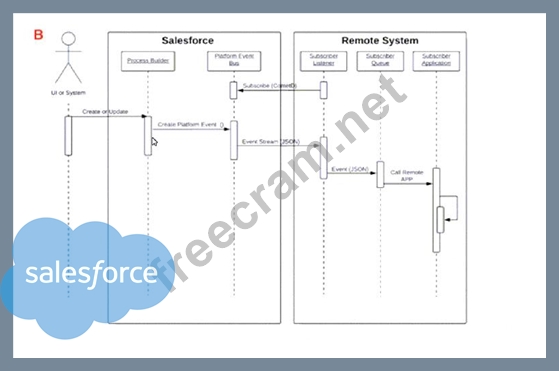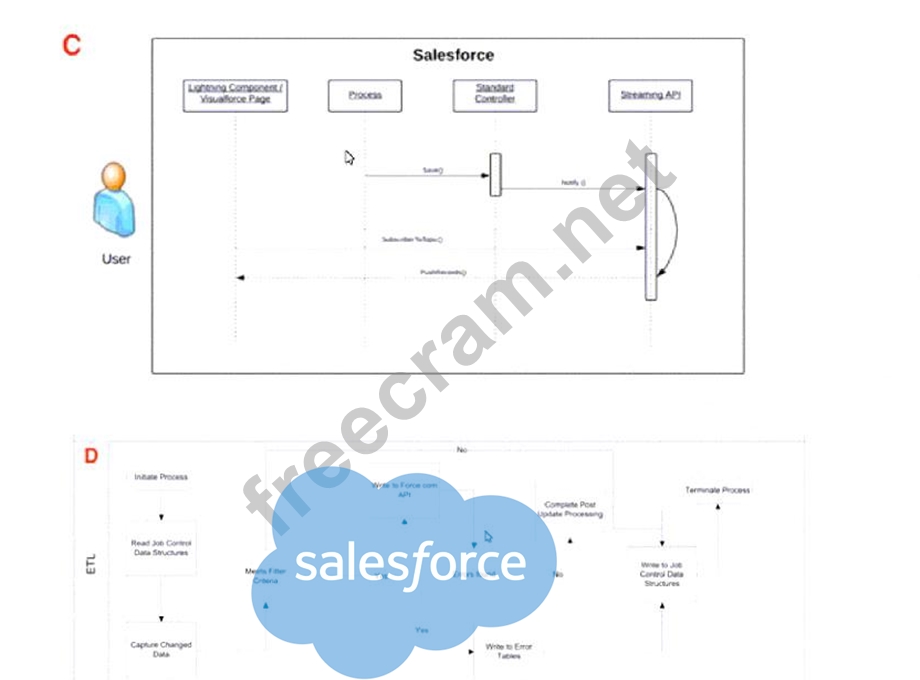<< Prev Question Next Question >>
Question 34/46
Refer to the images below:



As part of its solution to accelerate overall sales. Universal Containers (UC) has chosen to implement a CPQ solution using Salesforce CPQ. As part of the CPQ solution, there is a requirement to retain UC's ERP as the Pricing and Product master.
UC's business process results in Products and Pricing being updated sporadically once a week, and then on a much larger scale on a monthly basis, which could result in a large amount of records that need to be updated in Salesforce.
Whichstrategy should the Solution Architect choose to handle this scenario?



As part of its solution to accelerate overall sales. Universal Containers (UC) has chosen to implement a CPQ solution using Salesforce CPQ. As part of the CPQ solution, there is a requirement to retain UC's ERP as the Pricing and Product master.
UC's business process results in Products and Pricing being updated sporadically once a week, and then on a much larger scale on a monthly basis, which could result in a large amount of records that need to be updated in Salesforce.
Whichstrategy should the Solution Architect choose to handle this scenario?


